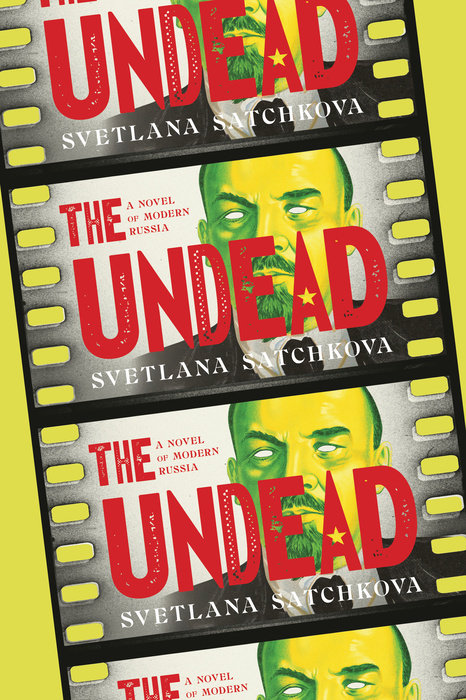
Buy the book
Paperback
Ebook
Book
The Undead: A Novel of Modern Russia, was released by Melville House in January 2026.
In this darkly funny and emotionally resonant novel of contemporary Russia, a young filmmaker unexpectedly finds herself targeted by an authoritarian regime—despite her best efforts to stay out of politics.
The Undead is a layered and sharply observant portrait of an artist caught in the machinery of state power, and the choices one faces in a system where even indifference can be dangerous. Written with the intimate insight of an émigré from Putin's Russia, The Undead is both a compelling narrative and a chilling reflection of how repression operates today—not just against dissidents, but against anyone.
When Maya, a young Russian filmmaker, makes a low-budget horror movie, it seems like a promising start to her indie film career. But her jokey lo-fi picture soon attracts the attention of the autocratic state, and Maya is swept into a nightmarish system where logic breaks down and no one is safe.
With all the absurdity of our current reality, The Undead is the story of a campy horror movie director who gets caught in the monstrous maw of the state. This novel, hilarious, disturbing, and remarkable, shows us Russia and America, the personal and the political, what's happening now and what's waiting in the darkness ahead. Get ready for the ghouls to grab you and not let go.
—Julia Phillips, author of Disappearing Earth and Bear
The Undead has the force of an undertow, pulling us relentlessly away from safety. Svetlana Satchkova has written a gripping, haunting portrait of a world coming undone.
—Madeleine Thien, author of The Book of Records and Do Not Say We Have Nothing
The Undead is a courageous and witty book about art and politics. With keen insight and wry humor, Svetlana Satchkova evokes Maya's devastating artistic and moral reckoning. This fascinating, propulsive novel will stay with me.
—Helen Phillips, author of Hum and The Need
In The Undead, the career and well-being of Maya, a young filmmaker in Moscow, unravels in the most bizarre, realistic way, showcasing the insidious, absurd nature of a totalitarian state. Deeply informative and engrossing, The Undead examines how bizarre and horrific human nature can evolve under the pressure of the desire to live unharmed rather than free. A moving examination of the meaning of home, the horror of a dictatorship, the hilarity and joy of movie making, and one woman's political coming of age in Putin's Russia. Truly important reading for our times.
—Paula Bomer, author of The Stalker
There is nothing supernatural about the zombies in Svetlana Satchkova's savvy, frightening novel. They are all of us, wherever we are, who keep looking away when authoritarian forces crush expression. Witty and unsettling, The Undead is a cautionary tale about, among other things, never quite admitting where the danger lies until it's too late.
—Sam Lipsyte, author of No One Left to Come Looking for You and The Ask
With razor-sharp prose of Nabokovian dexterity, Satchkova shows us the absurdity at the heart of one of the most viciously inventive autocratic systems of the new century. The more inventive artist, of course, is always what such a system fears most. In this propulsive page-turner fusing the political thriller with the portrait of an artist backed into a poisonous corner with only her creative wiles as defense, Satchkova creates a love letter to the difficult process of creation and captures the difficulties that most young artists only encounter in their most neurotic nightmares. A thrilling read that may jolt readers and artists of all sizes to see the process of creation anew as a subversive force that gains its power from its irreverence.
—Ernesto Mestre-Reed, author of Sacrificio and The Lazarus Rumba
Svetlana Satchkova's The Undead is a literary thriller that ensnares the reader from the start and doesn’t let go until the very end. It’s about trying to make art in a time of repression, about the compromises people make to pursue their dreams. The novel is set in Russia, but it will have particular resonance for American readers. It’s hard to imagine a more timely book.
—Joshua Henkin, author of The World Without You and Morningside Heights